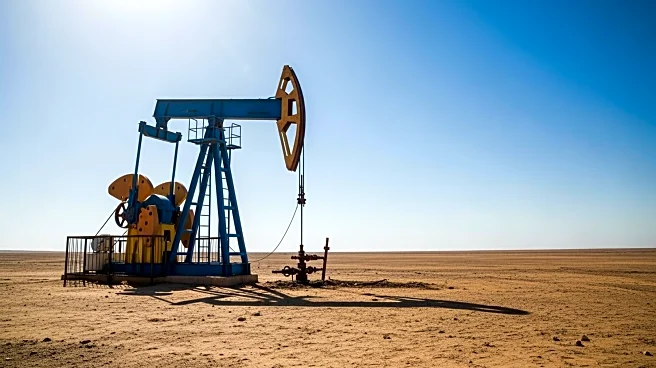What's Happening?
American sanctions on Russian oil giant Lukoil have led the company to declare force majeure for its operations at the West Qurna-2 oilfield in Iraq. This decision has resulted in taking nearly 10 percent of Iraq's oil production offline. The sanctions have prompted
the Iraqi government to cancel payments and export loadings for Lukoil, affecting the company's ability to operate effectively. West Qurna-2, a significant oilfield developed by Lukoil and Statoil, produces about 480,000 barrels per day. Lukoil owns 75 percent of this field, making it a crucial foreign asset for the company. The sanctions have forced Lukoil to lay off its international staff at the site, although its Russian and Iraqi workforce remains intact.
Why It's Important?
The force majeure declaration by Lukoil is significant as it reduces Iraq's oil production by approximately 480,000 barrels per day, impacting the global oil market. This situation highlights the broader implications of U.S. sanctions on Russian companies, affecting international oil production and trade. The potential exit of Lukoil from the field could open opportunities for Western oil companies to step in, altering the dynamics of oil production in the region. The sanctions also underscore the geopolitical tensions between the U.S. and Russia, influencing global energy markets and international relations.
What's Next?
If the sanctions situation remains unchanged, Lukoil may exit the West Qurna-2 field within six months. This could lead to a search for a buyer for its Iraqi holdings, although potential purchasers might face compliance challenges due to U.S. sanctions. The situation could pave the way for Western operators to take over the field, potentially reshaping the oil production landscape in Iraq. The ongoing sanctions and their impact on Lukoil's operations will likely continue to influence global oil prices and market stability.
















